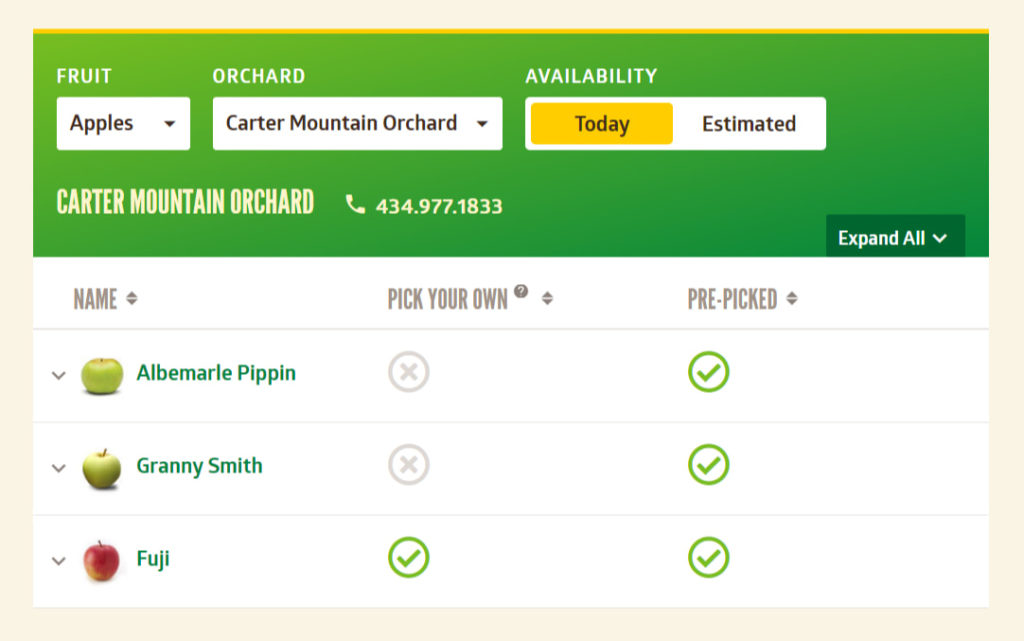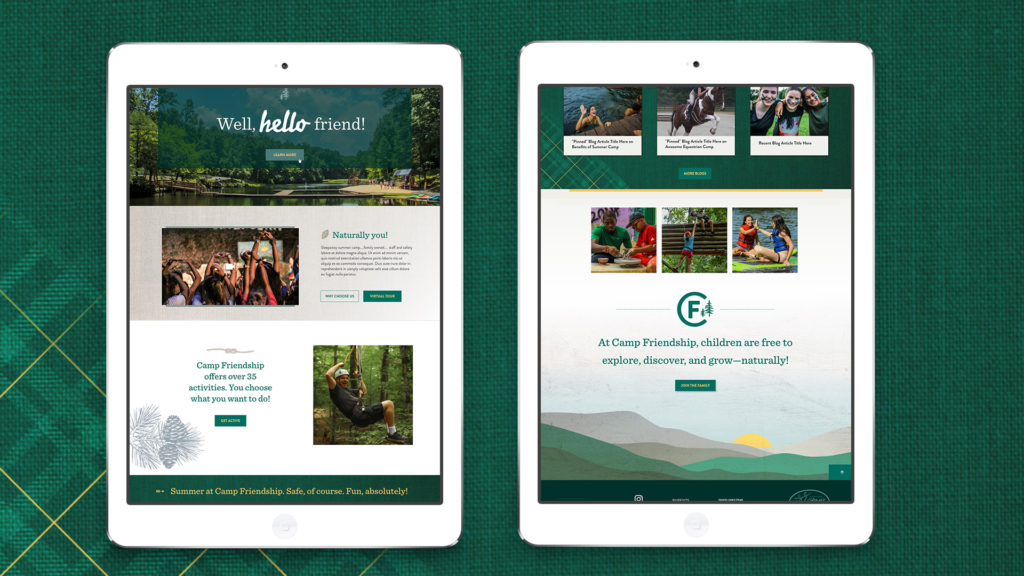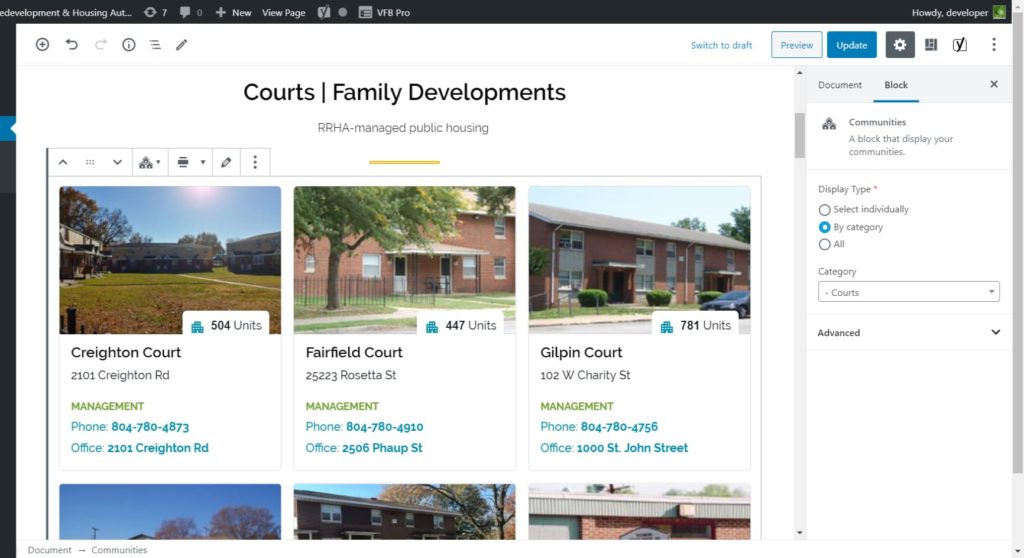WordPress is used by 64% of sites with a known CMS; roughly 40% of all websites.
W3techs.com
The world's most popular content management system (CMS), WordPress is also The Ivy Group's CMS of choice. We've been building professional sites since 1996 and working with WordPress since 2012. We’ve used it as the website backbone for associations, libraries, colleges and universities, law firms, manufacturers, housing authorities, tourist destinations, and the list goes on. So, why do we pick WordPress when building our sites?
The possibilities are endless with WordPress compared to more rigid proprietary website builders.
WordPress is an open-source platform that keeps pace with technology. The core code is continuously advanced and secured by a dedicated community of professional developers, academics, and enthusiasts.
WordPress is built in PHP: a robust, popular programming language. It’s built in an extensible way that gives programmers opportunities to create and integrate code for custom data management, display, and functionality. Our experienced web team goes way beyond configuration; they create the code for a CMS instance that meets your unique needs. (Like many great things in life, it takes a village to grow anything into its fullest potential!)
WordPress is software designed for everyone, emphasizing accessibility, performance, security, and ease of use. We believe great software should work with minimum set up, so you can focus on sharing your story, product, or services freely. — WordPress
Open Source CMS vs. Proprietary Website Builders
| Characteristics | Open Source CMS | Proprietary Website Builder |
|---|---|---|
| Software Licensing | Open source code is publicly available and free to customize | Closed source code is exclusive to the software owner; end-users pay to access limited functions |
| Platform Examples | WordPress, Drupal, Joomla, ExpressionEngine | SquareSpace, Wix, Weebly, MemberClicks (for associations) |
| Purpose | Custom website development | DIY, pre-fab site |
| Recommended For | Branded websites that are flexible and highly customizable | Lower budget websites that are fine with pre-fab themes |
| Do-it-yourself | If you don’t know how to code, you’ll want to contract with a professional agency | If you’re comfortable with picking fonts, colors, and layouts, give it a whirl |
| Timing | A strategic, phased approach with custom design and development usually requires 3-6 months | An out-of-the-box template means you can get your content online quickly |
| Content Manageable by Non-Developers | Yes | Yes |
| Ecommerce Functionality | Plugins such as WooCommerce are available | Upgrades to an ecommerce package are typically available |
| Third Party Integrations | With an experienced developer, the world is your oyster | Limited |
| Development Cost | Agency fees vary based on scope | None, if you do-it-yourself |
| Hosting Platform | Host wherever you want, such as LiquidWeb or WP Engine (You get what you pay for regarding features, service, bandwidth, etc.) | You’re locked into the platform where you built the site |
| Hosting Cost | Varies based on selected platform | Built into your monthly fee |
| Ongoing Maintenance Cost | Agency fees vary | Built into your monthly fee |
Our designers and developers have complete control over branding and functionality when integrating a site with WordPress.
Your website is the backbone of your digital brand, and is often the first touch point that a prospective customer will have with your organization. For that reason, it's critical that your website is accessible, organized, and representative of your brand.
Luckily, there is no one “cookie-cutter” look for a WordPress website.
WordPress provides extensive flexibility for designers and developers to create themes that are representative of their brand. It is up to the developer how simple or complex these themes need to be.
So, what does this all really mean? Developers can leverage WordPress to build and manage any type of website with unique content types. This means that, when you log into the WordPress CMS, you will see all aspects of your website displayed in the format and functionality that you want.
After we launch a new site in WordPress, it's never locked inside that box. New features are easy for developers to add, allowing websites to be scaled up in exciting new ways.
Interested in our transition to WordPress? Read ivygroup.com/blog/mimik.

We take advantage of WordPress’ impressive library of plugins to customize capabilities without breaking the bank.
With well over 50,000 free and premium WordPress plugins available, we’re able to easily tackle common site functions. These plugins allow us to focus our attention on branding your site and building custom features. This is a boon for your budget, as our developers aren’t forced to reinvent the wheel for common functions.
Some of our basic go-to plugins include:
- Search engine optimization: Yoast SEO
- Site-wide search: Relevanssi
- Forms: Gravity Forms or Visual Form Builder Pro
- Calendars: Modern Events Calendar or The Events Calendar (free to 501(c)(3) orgs)

The WordPress block editor makes it easy for content managers to edit their site and create unique layouts.
You don’t need to be a rocket scientist (or web developer) to manage your content in WordPress. But if you’re truly looking to meet the needs of your users, you need to understand how to make your content as engaging and accessible as possible!
For years, we established custom layouts for clients using page templates. Content managers would primarily edit text, add links, place images, etc. using WYSIWYG (what-you-see-is-what-you-get) editors. In many ways, it was a simpler age of content management.
Then web users got savvier, site designs needed to be more flexible, and we all needed to adapt.
We eagerly jumped on board when WordPress overhauled its editing experience to the new Gutenberg block editor. Gutenberg features blocks like headers, paragraphs, lists, images, videos, buttons, quotes, tables, and embeddable multimedia. These blocks are easily dragged, dropped, and customized on a page. We also define blocks catered to simple and complex client needs, including columns, separators, and “media & text” combos.
Of course, with great freedom comes great responsibility, so our training sessions are more important than ever.
“I've seen many companies abandon WP for the shiny new stack, and then come back to it. Github is a good example of this—yes Github, the modern repository of cutting-edge code moved their blog off of WordPress, and then came back because it truly is the best tool for just getting your content out there.” — Miriam Schwab, Strattic Co-founder and CEO (Source)

WordPress might not be right for everyone, but if you’re looking for a custom branded website and an experienced team to help you connect with your audience, get in touch!

Category: Web & Technology
Tags: content management, websites, wordpress

